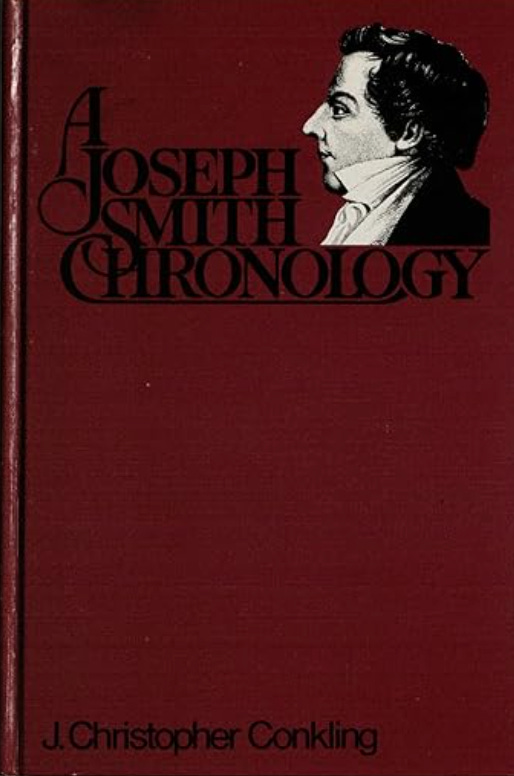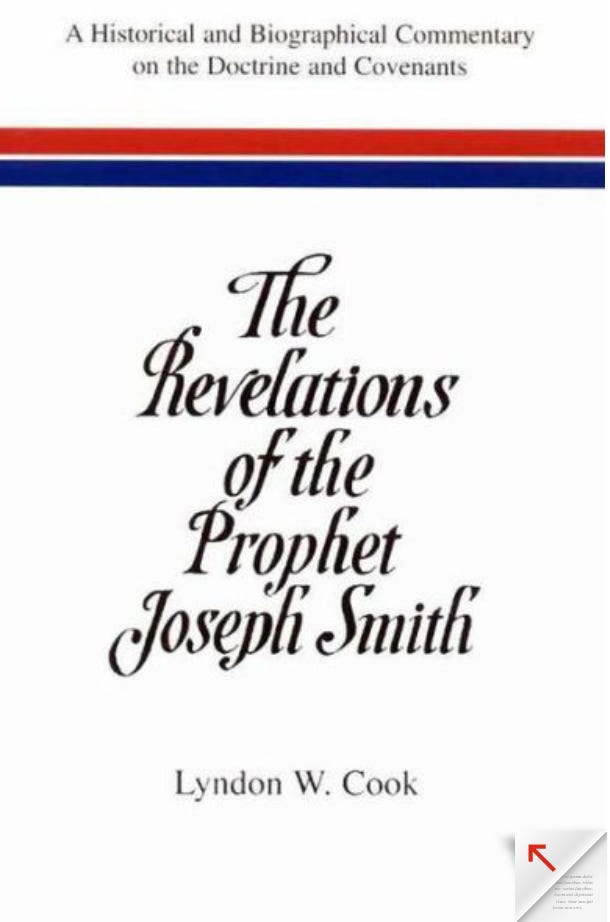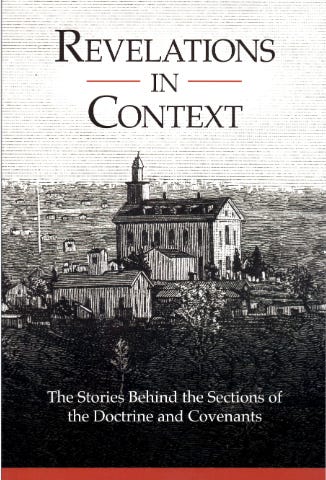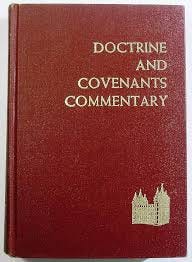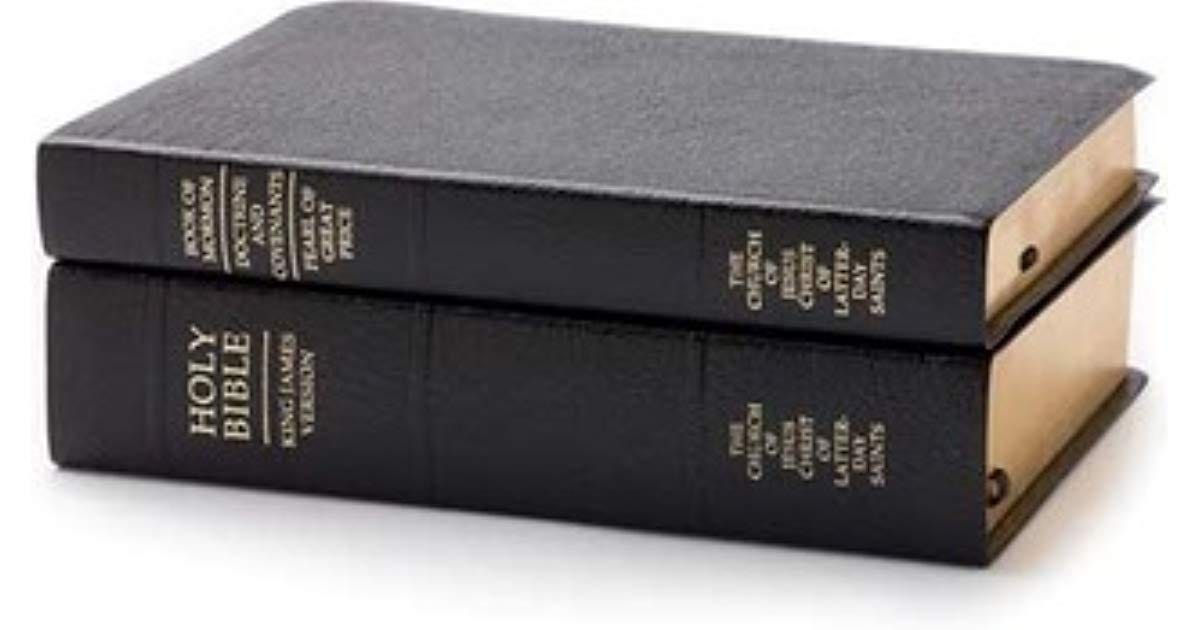Jesus Christ Knows How to Succor Us
Historical Background and Reflections on Doctrine and Covenants 62
What is the historical background for Doctrine and Covenants 62?
In his book A Joseph Smith Chronology, J. Christopher Conkling share this brief introduction to this section:
Aug. 13, 1831
Joseph meets other elders who have been traveling and preaching. He receives D&C 62, which encourages them.
In his book The Revelations of the Prophet Joseph Smith, Lyndon W. Cook sheds more light on the background for this section:
Date. 13 August 1831.
Place. (Chariton, Chariton County, Missouri).
Historical Note. After receiving section 61 at their encampment on McIlwaine’s Bend, Joseph Smith and his ten companions crossed to the north side of the Missouri River and stopped at Chariton. Here they were happily surprised to find Hyrum Smith, John Murdock, David Whitmer, and Harvey Whitlock bound for Independence, Missouri. In this joyous setting section 62 was received.
The revelation instructed the four above-named missionaries to continue on to Independence and hold a meeting. These brethren did hold a meeting after their arrival in Jackson County, Missouri, on 24 August 1831.
After this revelation was received, Joseph Smith, Sidney Rigdon, and Oliver Cowdery traveled on foot to Fayette, Missouri, where they took the stage to St. Louis. At St. Louis the trio again boarded a stage, this time for Kirtland, where they arrived 27 August 1831. (pp. 97-98)
As a review, in Revelations in Context, “Ezra Booth and Isaac Morley,” we read:
Joseph Smith received another revelation the following morning on the riverbank (Doctrine and Covenants 61), in which the Lord warned them of danger upon the water but said, “It mattereth not unto me … whether they go by water or by land.”20
Joseph proceeded on land the next day with a part of the group. They encountered his brother Hyrum and others who had been delayed and had yet to visit the site for Zion. A revelation (Doctrine and Covenants 62) admonished them, “Continue your Journey, assemble yourselves upon the land of Zion, & hold a meeting & rejoice together & offer a sacrament unto the most high.”21
This is Bruce R. McConkie’s section heading:
Revelation given through Joseph Smith the Prophet, on the bank of the Missouri River at Chariton, Missouri, August 13, 1831. On this day the Prophet and his group, who were on their way from Independence to Kirtland, met several elders who were on their way to the land of Zion, and, after joyful salutations, received this revelation.
Smith and Sjodahl give the following introduction to this section:
On the 13th of August, the day after the Revelation regarding the curse upon the waters had been given, the Prophet met a company of Elders from Kirtland, presumably some of those called on the 7th of June to go to Missouri on a mission (See Sec. 52). There was great rejoicing when the two companies met.
Our Lord, on one occasion, gave an interview to some Greeks who had come to Jerusalem to worship. He saw in the presence of those strangers an assurance of the coming of the day when He shall be glorified and, being lifted up, draw all men unto Him (John 12:20-32). In the same way, we may be assured, the Prophet Joseph, on this occasion, looked far into the future, when from every land and every direction, multitudes, and not only a few Elders, would go up to redeem Zion, with songs of everlasting joy. On this inspiring occasion the Revelation in this Section was received. (p. 370)
This commandment, or revelation, is short, but sweet:
Behold, and hearken, O ye elders of my church, saith the Lord your God, even Jesus Christ, your advocate, who knoweth the weakness of man and how to succor them who are tempted.
And verily mine eyes are upon those who have not as yet gone up unto the land of Zion; wherefore your mission is not yet full.
Nevertheless, ye are blessed, for the testimony which ye have borne is recorded in heaven for the angels to look upon; and they rejoice over you, and your sins are forgiven you.
And now continue your journey. Assemble yourselves upon the land of Zion; and hold a meeting and rejoice together, and offer a sacrament unto the Most High.
And then you may return to bear record, yea, even altogether, or two by two, as seemeth you good, it mattereth not unto me; only be faithful, and declare glad tidings unto the inhabitants of the earth, or among the congregations of the wicked.
Behold, I, the Lord, have brought you together that the promise might be fulfilled, that the faithful among you should be preserved and rejoice together in the land of Missouri. I, the Lord, promise the faithful and cannot lie.
I, the Lord, am willing, if any among you desire to ride upon horses, or upon mules, or in chariots, he shall receive this blessing, if he receive it from the hand of the Lord, with a thankful heart in all things.
These things remain with you to do according to judgment and the directions of the Spirit.
Behold, the kingdom is yours. And behold, and lo, I am with the faithful always. Even so. Amen. (D&C 62:1-9)
We should always ask: What do we learn about our Savior Jesus Christ from these verses? One thing that we learn of Him, or of which He reminds us, is that He is our advocate. We’ve previously studied something about what it means that Jesus Christ is our advocate:
Listen to him who is the advocate with the Father, who is pleading your cause before him—
Saying: Father, behold the sufferings and death of him who did no sin, in whom thou wast well pleased; behold the blood of thy Son which was shed, the blood of him whom thou gavest that thyself might be glorified;
Wherefore, Father, spare these my brethren that believe on my name, that they may come unto me and have everlasting life. (D&C 45:3-5)
In D&C 62, we learn even more about what it means for Jesus Christ to be our advocate with the Father. He doesn’t just plead our cause like an attorney who doesn’t really know how we feel or what we’ve been through. He pleads our cause as One who knows exactly how we feel and exactly what we’ve been through. He knows our weakness. He knows how to succor us. He understands the temptations that so easily beset us. He sees us and watches over us. He pleads on our behalf.
In these verses the Lord spoke to His early Saints, but He might as well be speaking of us as well, because we have not yet gone up unto the land of Zion, and therefore, our mission is not yet full either. We are also blessed when we share our faith and our testimony of Jesus Christ, because such is also recorded in heaven for the angels to look upon. Can you imagine that the angels look upon our testimonies of Christ and rejoice over us? I know that Jesus is the Christ, the Son of God, and our Advocate with the Father. I know that He lives and will soon return to earth. I know that He is our Savior who loves us and succors us in our time of need. I know that He forgives us of our sins as we repent and humble ourselves before Him.
This joyful meeting of the Saints reminds me very much of the joyful meeting of the missionary brothers, the sons of Mosiah, and Alma the Younger in the Book of Mormon. Instead of Ammon, Aaron, Omner, and Himni, this time it was Hyrum Smith, John Murdock, David Whitmer, and Harvey Whitlock who rejoiced together in their missionary labors. Instead of Alma the Younger, it was the Prophet Joseph Smith (and his companions) who were filled with joy to meet their fellow servants again.
The Lord commanded Hyrum Smith, John Murdock, David Whitmer, and Harvey Whitlock to continue on their journey to Independence, Missouri, to assemble in the land of Zion, to hold a meeting and rejoice together, and to offer a sacrament unto the Most High. When they arrived in the land of Zion, they held a meeting as commanded, on August 25 1831. Meanwhile, Joseph Smith, Sidney Rigdon, and Oliver Cowdery returned to Kirtland, Ohio, where they arrived on August 27, 1831. The travel back and forth between Independence, Missouri, and Kirtland, Ohio must have been high adventure.
The Lord commanded the four missionaries to return to Kirtland after their meeting and bear record of their experiences in the land of Zion, following the directions of the Spirit of God, and declaring glad tidings along the way. The Lord who cannot lie was fulfilling His promises, and He was even willing to bless His servants to travel in style.
This is Smith’s and Sjodahl’s commentary on this section:
Succor them who are tempted] Our Lord addresses the Elders as their advocate (comp. Sec. 29:5), who knoweth the weakness of man, and how to succor those who are tempted. He suffered temptation. Not only did He pass through two great crises - one at the beginning of His ministry, in the desert, and one at its close, in Gethsemane - but His entire life on Earth was a trial, such as no other human being can comprehend. Can we imagine a man with an unstained character, pure, refined, unselfish, and beautiful in soul, compelled to live, for some time, in association with fellow-beings the very opposite of all this - morally crippled and deformed, full of bigotry, hatred, selfishness? If so, we can vaguely understand some of the sufferings of our Lord while on this Earth. But, thank God! because of the temptations He endured, He can sympathize with His brethren and plead their cause. Someone has well said, “By His passion, He acquired compassion.”
Your mission is not yet full] As long as there were those who would go to Zion, through the missionary labors of the Elders, their mission was not completed.
Testimony *** recorded in heaven] The Elders are blessed, for the testimony they had borne had been recorded in heaven for the angels to look upon. St. Peter uses a similar expression (I. Peter 1:12). He teaches us that prophets have diligently searched to find out the time indicated by the Spirit of Christ, when it testified of His sufferings and the glory that should follow. “These things, he says, “angels desire to look into.” In this Revelation we are told that angels are scrutinizing the records kept of the testimonies of the Elders, and that they rejoice over the witnesses. It appears from this that the ministry on earth has its effects beyond the veil as well as on this side. An Elder who bears his faithful testimony to the truth does not know how far-reaching the result may be, though his visible audience may consist of but few.
Offer a sacrament] Comp. Sec. 59:9, 12.
-
That the promise might be fulfilled] Comp. Sec. 28:9, 42:9, 35, 62, 67; 45:64-71).
-
-
Behold, the kingdom is yours] The Kingdom of Heaven, the center of which here on Earth is, or will be, the land of promise toward which the Elders addressed were traveling. Great faith may have been required to see in the sparsely settled region of Western Missouri a portion of the Kingdom of God; but does not the entire Earth belong to our Lord, as His Kingdom, whether men acknowledge that fact or not?
General Notes
Orson Pratt, on the 14th of July, 1849, closed a treatise on The Kingdom of God with this prophetic utterance:
“Awake, for troublous times are at hand! Nations shall no longer sit at ease! The troubled elements shall foment and rage, and dash with tremendous fury. A voice is heard unto the ends of the Earth. A sound of terror and dismay! A sound of nations rushing to battle: fierce and dreadful is the contest; mighty kingdoms and empires melt away. The destroyer has gone forth, the pestilence that walketh in darkness. The plagues of the last days are at hand, and who shall escape? None but the righteous; none but the upright in heart; none but the children of the Kingdom. They shall be gathered out from among the nations; they shall stand in holy places and not be moved. But among the wicked, men shall lift up their voices and curse God because of His sore judgments, and die. And there shall be a voice of mourning and lamentation unto the ends of the Earth; for the cup of the indignation of the Almighty shall be poured out without mixture or mercy, because they would not receive His messengers, but hardened their hearts against the warning proclamation; against the gospel of the Kingdom, and against the great, preparatory work for the universal reign of the King of kings and Lord of lords.”
It is difficult to decide which is the more striking feature of this prophecy: The resemblance of the language to that of the ancient prophets, or the literal fulfilment that is now, since 1914, a matter of history. (pp. 371-372)
I appreciate Smith’s and Sjodahl’s commentary and testimony of Jesus Christ. I have often similarly thought that when we speak of the Atonement of Jesus Christ, we ought to think of our Savior’s entire life, including His pre-mortal, mortal, and post-mortal life. I appreciate Smith’s and Sjodahl’s question regarding our Savior’s perfect and pure heart and character and His most beautiful Soul (not to mention His perfect, Divine, and pure intelligence) in the midst of imperfect, impure, and fallen mortals. It is customary among Christians to commemorate Christ’s suffering in Gethsemane and upon the Cross of Calvary, but more rarely do we consider how Gethsemane and Calvary were the culmination of His suffering during His most difficult life. Thus Isaiah’s testimony is deeper, broader, and more far reaching in its substance and implications that many other testimonies:
He is despised and rejected of men; a man of sorrows, and acquainted with grief: and we hid as it were our faces from him; he was despised, and we esteemed him not.
Surely he hath borne our griefs, and carried our sorrows: yet we did esteem him stricken, smitten of God, and afflicted.
But he was wounded for our transgressions, he was bruised for our iniquities: the chastisement of our peace was upon him; and with his stripes we are healed. (Isaiah 53:3-5)





